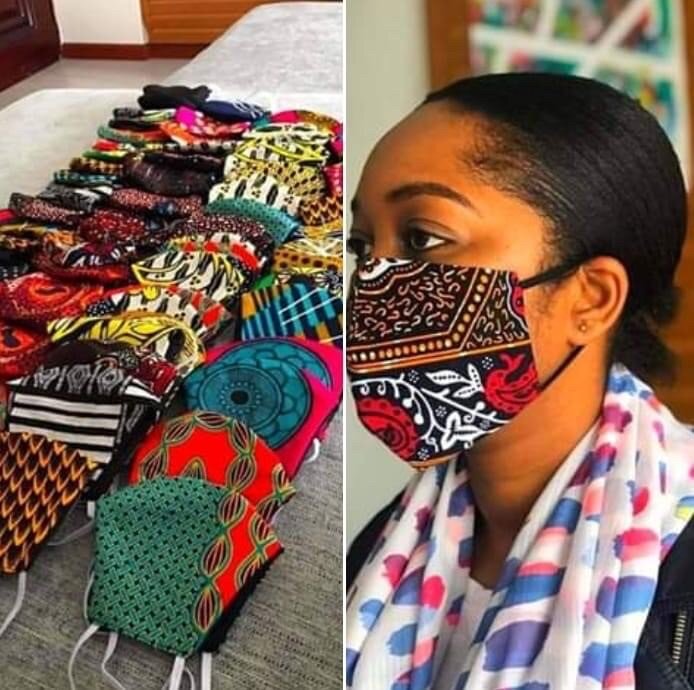Shelter from the Viral Storm
Kibera Nairobi - Community of displaced persons living in poverty : photo by Domwilson Odhiambo
Covid-19 - first in China, progressing to Europe, then North America and now finding its way across Africa. New laws, directives, rules for social distancing, thousands of home-made masks and curfews extended. There are reports of police brutality and the army being used as enforcers of public health. Initially it was stories of borders closed too late, and now the country is in a total lockdown with travel stopped in and out of Mombasa and Nairobi. Schools and churches are closed and large gatherings are forbidden. People gather to pray, some on their own and others in public while distancing.
LEFT: CES Leadership Student Christine Achieng makes her own mask.
RIGHT: CES Alumni Dennis Were coordinates CIFORD Kenya healthcare sector.
Three associates of CES Canada in Kenya find ways to assist. A friend in Nairobi distributes food to needy families. As leader of his congregation, Reverend Livingstone Nyanje hears so many stories of people desperate just to put food on the table. Refusing to leave Nairobi for his village home, he has chosen to stay with his people and support them in their days of crisis. CES Graduate Dennis Were brings the community both education and supplies of food and protective masks. He works in Meru County, operating a motorcycle to get to remote villages. Patricia Makori remains in self isolation, working from home. In her spare moments she creates masks for her family members and others in the community.
Photos by Patricia Makori
Communities are coming together to share their meager resources. People across Kenya sew face masks out of scrap fabric and are handing them out for free after price gouging by commercial suppliers. There is the account of a young man renting speakers, tying them to his motorcycle, and riding through his neighborhood to let people know about a new disease. Market places are making available hand washing stations. People unable to attend the mosque or a church are praying openly, without fear, many wearing a face mask.
And yet, like all over the world, there are those who refuse to believe there is a problem. Wearing a mask in public to protect others around them is not important. In areas of high density population where self distancing is difficult, it becomes even more important. Wearing a mask in public is a necessity and not a nice suggestion made by people sitting in their offices or working from home.
Scenes from Kisii Town. Photos by Patricia Makori
As if Covid19 was not enough to deal with, there is huge concern over hunger in West Pokot region of Kenya; as well, there are 50,000 people who have now been displaced by recent floods and heavy rains in Busia, Bungoma, Kakamega and Vihiga Counties. This will mean people travelling to other parts of the country to find shelter and new sources of food. Their health is compromised and again, there is an even stronger need for people to protect themselves and others around them.
The real question is not whether to wear a mask or not to. The one we must ask again and again is how do we protect the most vulnerable from Covid19. That includes the poorest, the elderly, the weakest and those least able to find a "shelter from the viral storm". If it takes a mask to at least help - then so be it. The virus does not discriminate between the rich or poor - it does however impact more on the ones least able to protect themselves. To not wear a mask shows disregard for a fellow human being...so, if you cannot self distance, wear that mask. It's the only decent and moral thing to do.










